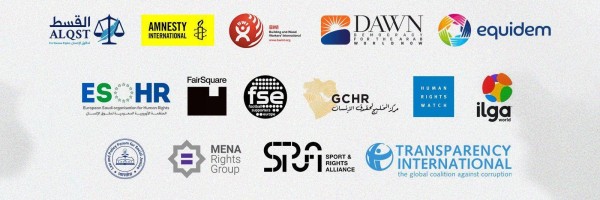ALQST express its deep concern at the findings of the Secretary General's latest annual report on reprisals and intimidation against individuals cooperating with UN human rights mechanisms.
The report, which was presented by UN Assistant Secretary-General (ASG) Andrew Gilmour on 19 September 2019, highlights the pattern of intimidation and reprisals by the authorities in Saudi Arabia.
The report describes reprisals taken against Saudi women human rights defenders Loujain al-Hathloul, who cooperated with the Convention on the Elimination of all Forms of Discrimination Against Women (CEDAW) in 2018, and Samar Badawi, who gave a statement at the Human Rights Council in 2014.
Both have faced arrest, torture, and are still being held arbitrarily for their activism and UN engagement. They are currently facing trial, along with eleven other women activists, on charges including cooperating with the UN and human rights defenders such as ALQST Director Yahya Assiri. Some were also interrogated about Mr Assiri, including his engagement with the UN Human Rights Council.
The report also mentions the continued reprisals against other human rights defenders, such as the ill-treatment in prison against Mohammed al-Qahtani, Essa al-Nukheifi, and Fowzan al-Harbi, including the denial of medical treatment, being placed in solitary confinement, and denied family visits. These individuals were sentenced to long-term jail terms on charges relating to their activism and cooperation with the UN.
Such cases, which were included in previous UN reports, show a consistent pattern of intimidation and reprisals by the authorities in Saudi Arabia, and are part of a sweeping crackdown against human rights defenders and civil society members.
ALQST calls for the immediate and unconditional release of all prisoners of conscience in Saudi Arabia, including those imprisoned and ill-treated as a result of their engagement with the UN, and supports calls for a more comprehensive system for preventing intimidation and reprisals, including for the establishment of UN monitoring mechanism over the human rights situation in Saudi Arabia.




